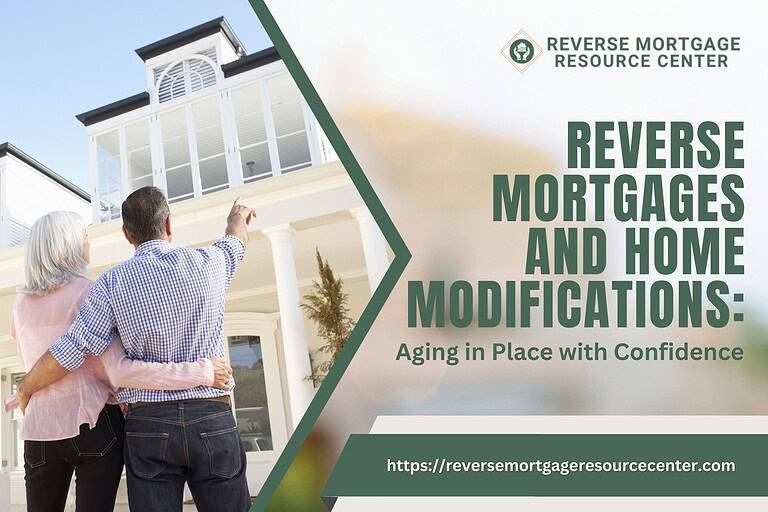Idaho Reverse Mortgages vs. Traditional Home Equity Loans: Pros and Cons
When it comes to unlocking the equity in your home, two common options available to homeowners in Idaho are reverse mortgages and traditional home equity loans. Both of these financial instruments offer ways to tap into the value of your property, but they operate in distinct ways and come with advantages and disadvantages. In this article, we will explore the pros and cons of Idaho reverse mortgages and traditional home equity loans to help you decide which option best fits your financial needs.
Understanding Reverse Mortgages
A reverse mortgage is a unique financial tool that allows homeowners aged 62 or older to convert a portion of their home equity into tax-free funds without making monthly mortgage payments. The loan is repaid when the homeowner sells the home, moves out, or passes away. In Idaho, as in the rest of the United States, there are several types of reverse mortgages, including Home Equity Conversion Mortgages (HECMs), which are insured by the Federal Housing Administration (FHA).
Pros of Reverse Mortgages
- No Monthly Mortgage Payments: One of the most significant advantages of a reverse mortgage is that you are not required to make monthly payments. This can greatly relieve retirees on a fixed income, easing their financial burden.
- Tax-Free Funds: The funds received from a reverse mortgage are typically considered a loan advance and are not subject to income tax. This can be attractive for those looking to supplement their retirement income.
- Flexible Payout Options: Borrowers can choose from several payout options, including a lump sum, monthly payments, or a line of credit. This flexibility allows homeowners to tailor the loan to their individual financial needs.
- Stay in Your Home: With a reverse mortgage, you can stay home if you meet the loan requirements, such as living in the property as a principal residence, and keeping up with property taxes and insurance.
- Non-Recourse Loan: Reverse mortgages are typically non-recourse loans, meaning the lender can only look to the home for repayment. If the loan balance exceeds the home’s value when it’s time to repay, the lender cannot pursue other assets or heirs.
Cons of Reverse Mortgages
- Accruing Interest: While you’re not making monthly payments, interest on the loan continues to accrue. This means the amount you owe will increase over time, potentially reducing the inheritance you can leave to your heirs.
- Initial Costs: Reverse mortgages come with upfront costs, such as closing fees, mortgage insurance, and origination fees. These costs can eat into the amount you receive from the loan.
- Impact on Heirs: When the homeowner passes away or moves out, the loan becomes due. Heirs may have to sell the home to repay the loan, which can limit their inheritance. However, they can also pay off the loan and keep the home.
Traditional Home Equity Loans
A traditional home equity loan, also known as a second mortgage, allows homeowners to borrow a fixed sum of money based on the equity in their home. Unlike a reverse mortgage, a home equity loan requires regular monthly payments and is available to borrowers of all ages.
Pros of Traditional Home Equity Loans
- Fixed Monthly Payments: With a home equity loan, you have predictable monthly payments, making it easier to budget and plan for the loan repayment.
- Lower Interest Rates: Home equity loans typically offer lower interest rates than unsecured borrowing, such as credit cards or personal loans.
- Tax Deductibility: In many cases, the interest paid on a home equity loan may be tax-deductible, potentially providing a financial benefit.
- No Impact on Heirs: Unlike a reverse mortgage, a traditional home equity loan must not be repaid when the homeowner dies. The heirs inherit the debt along with the home.
Cons of Traditional Home Equity Loans
- Monthly Payments: The need to make regular monthly payments can be a financial burden, especially for retirees or those with limited income.
- Risk of Foreclosure: If you fail to make the required payments on a home equity loan, you risk foreclosure, which can result in losing your home.
- Reduced Home Equity: A home equity loan reduces the equity in your home. This can impact your ability to access the full value of your property in the future.
- Limited Eligibility: To qualify for a traditional home equity loan, you need a good credit score and sufficient income to make the monthly payments. This can exclude some homeowners who may benefit from such a loan.
Which Option is Right for You?
The choice between a reverse mortgage and a traditional home equity loan depends on your circumstances, financial goals, and preferences. Consider the following factors when making your decision:
Age and Retirement Status
If you are 62 or older and looking to enhance your retirement income without the burden of monthly payments, a reverse mortgage may be the better option. It’s specifically designed for retirees who want to tap into their home equity.
On the other hand, if you are not yet retired or need a lump sum of money for a specific purpose, a traditional home equity loan may be a more suitable choice.
Financial Needs and Goals
Consider your immediate and long-term financial needs. Are you looking for a steady stream of funds to supplement your retirement? A reverse mortgage provides this with its flexible payout options.
Conversely, if you have a specific project or expense in mind, such as home improvements or medical bills, a traditional home equity loan provides a lump sum of cash upfront.
Tolerance for Monthly Payments
Assess your ability and willingness to make monthly payments. A traditional home equity loan requires regular payments, which may be a more comfortable option if you have a steady income and can handle the financial commitment.
A reverse mortgage, with no monthly payments, can appeal to those who want to eliminate the stress of monthly financial obligations.
Estate Planning
Consider your estate planning goals. If leaving a substantial inheritance to your heirs is a top priority, a traditional home equity loan may be more suitable, as the balance does not increase over time.
However, if preserving home equity for your heirs is less critical, a reverse mortgage allows you to access your home’s value while maintaining the flexibility to decide how to repay the loan.
REVERSE MORTGAGE RESOURCE CENTER ~LIVE LIFE ON YOUR TERMS~
Our Lending Team has been serving our clients since 2004. We are passionate about serving our clients with integrity to help them achieve their financial goals.







